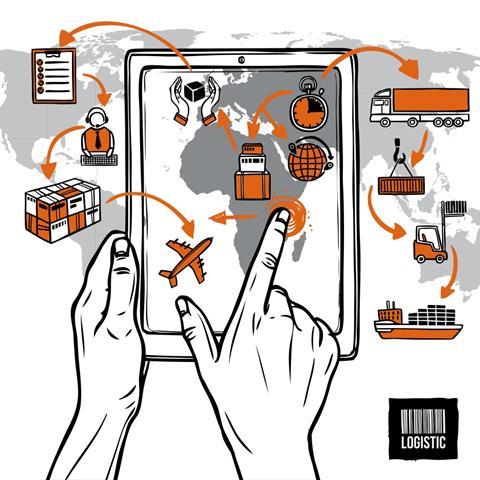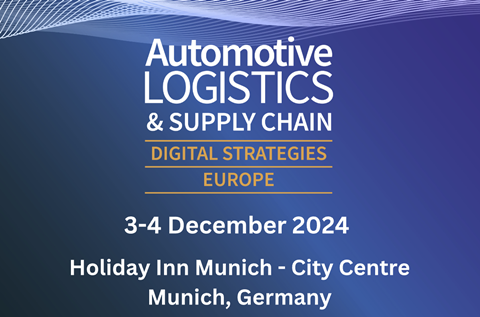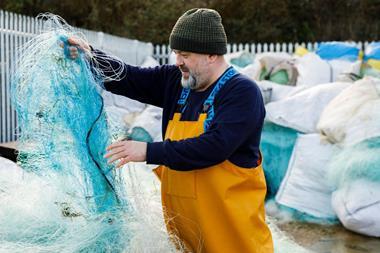Digital Catapult, the UK technology innovator that brings together government, industry and academia, has launched a platform designed to facilitate collaboration between manufacturers and technology providers across the country.
The Digital Supply Chain Hub is designed to help manufacturers in the search for a suitable supply chain partner, tackling problems such as siloed operations and the ineffective transfer of information. According to Digital Catapult, the platform will offer bespoke educational modules to address critical skills shortages in the UK and help users connect to businesses relevant to their specific needs.

“The platform marks a significant step towards greater collaboration, cooperation and communication in the supply chain sector, fuelling innovation and new ideas,” said Tim Lawrence, director of the Digital Supply Chain Hub at Digital Catapult. “By creating a commercially neutral ecosystem, we will enable industry leaders, researchers, and technology providers to address critical supply chain challenges directly, strengthening critical economic sectors and empowering businesses to apply new solutions to transform their operations.”
The platform will offer resources such as the Edge Digital Manufacturing Readiness diagnostic tool. The tool helps manufacturers to identify their specific digital supply chain strength and development areas. Users can download a tailored report which provides insights and recommendations. These can be used to develop a digital supply chain roadmap.
“Navigating new technologies can be overwhelming and many leaders we speak with don’t know where to start or what to do next,” said Ravi Gidoomal, director of Edge Digital Manufacturing. “Others find it hard to maintain momentum and get their team excited about change with all the other pressing demands on their time. We’ve developed the Digital Supply Chain Readiness course to provide real-life examples and practical actions, helping leaders to take their first or next step to digitalise their supply chains.”
The Digital Supply Chain Hub will offer the supply chain resilience navigator, a tool from WMG, an academic department at the University of Warwick that helps collaboration between academia and the public and private sectors, aiming to drive innovation in science, technology and engineering.
“Both tools will help businesses to better understand how to make their supply chains more sustainable, resilient and efficient,” said Digital Capapult.
Single source for stability
UK automotive companies are embracing new technology to improve efficiency. For example, JLR is working with its sister company Tata Technologies to implement an updated ERP system, including cloud-based SAP S/4 Hana, that brings in data from multiple departments into one single source to stabilise operations and improve supply chain visibility for both the carmaker and its suppliers. At this year’s inaugural Automotive Logistics and Supply Chain Digital Strategies conference in Germany, Paulina Chmielarz, industrial operations digital and innovation director at JLR, outlined the concerted efforts the carmaker has made in developing a digitally supported strategy for product lifecycle management in its assembly plants, one that ultimately relied on a core IT infrastructure.
The Digital Supply Chain Hub will also offer community forums called Circles, bringing together talent, technologies and resources to build more efficient, resilient and sustainable supply chains, according to Digital Catapult.
In terms of its sustainability credentials, the group referenced IT company Accenture and its finding that more than 60% of most industrial companies’ CO2 emissions originate from supply chain operations. In response it said the hub encouraged more businesses to explore applications of deep technology to advance industrial sustainability in their operations.
Digital Capapult also referenced Neos Network’s 2024 UK Logistics Digital Infrastructure Report, which finds that the majority of the UK logistics industry is looking for digital solutions to optimise operations, with 86.5% planning to invest in at least one digital technology packaging over the next two years. That, it said, would fule demand for the services available on its platform.
In a recent interview at this year’s Automotive Logistics and Supply Chain Europe conference in Bonn, Dr Michael Nikolaides, senior vice-president, Production Network, Supply Chain Management and Logistics at BMW Group, said that what has changed over the last five years is digitalisation and data accuracy, and using artificial intelligence and algorithms to extract the relevant data out of the vast amount that is now gathered.
Automotive Logistics and Supply Chain Digital Strategies Europe will take place in Munich, Germany between December 3-4 this year, with speakers from Audi, JLR, Seat and Toyota already confirmed


























![Global[1]](https://d3n5uof8vony13.cloudfront.net/Pictures/web/a/d/s/global1_726550.svgz)














No comments yet